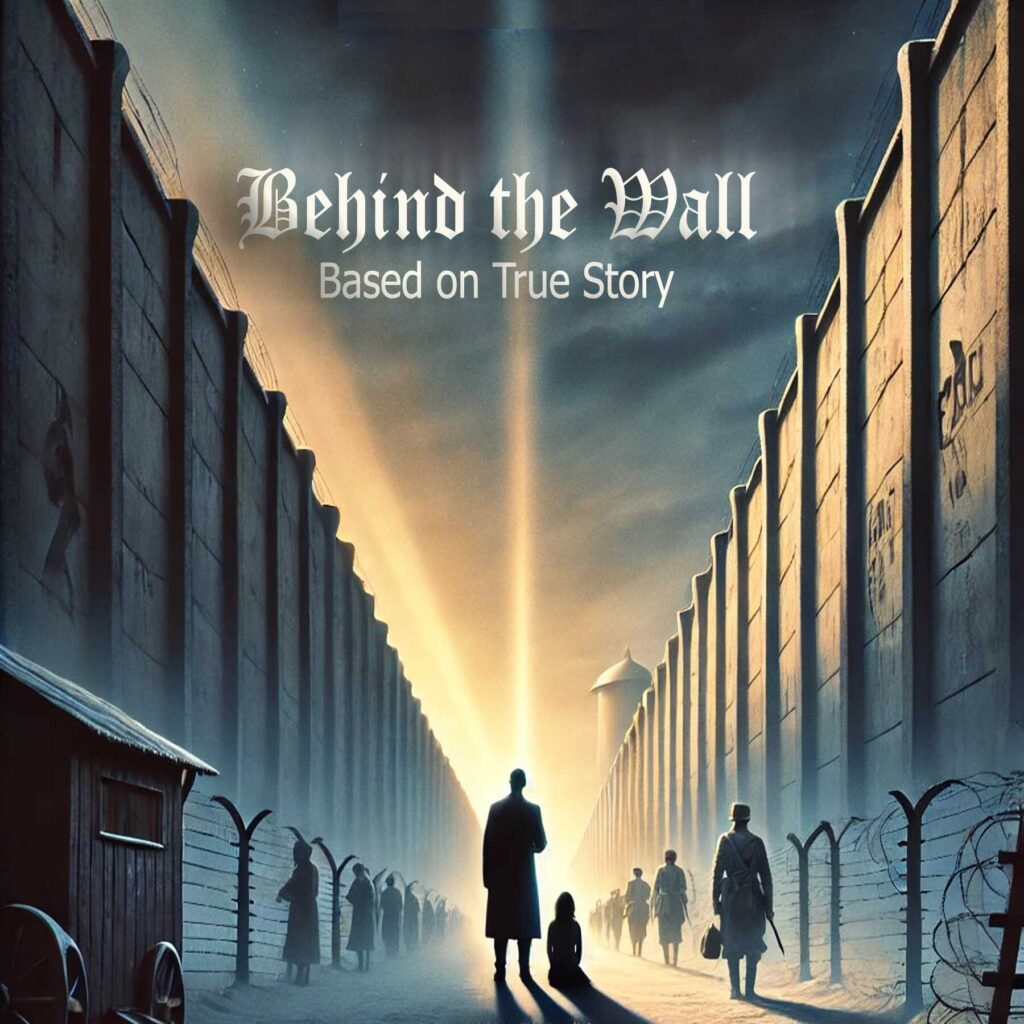
Behind the Walls
Once upon a time in 1944, in a small town in Poland under German occupation, there was a ghetto surrounded by high walls. Inside these walls lived a community of people who had been cut off from the outside world for years. Among them was Czek, a Polish shopkeeper, who often gazed longingly at the wall, wondering what lay beyond it.
One day, as a curfew siren echoed through the streets, Czek spotted a newspaper fluttering by. Driven by curiosity, he dashed after it, but a German soldier caught him in the act. The soldier sent him to a senior officer, demanding an explanation for being outside during curfew. Just then, a shocking announcement came through—Soviet troops were only a few kilometers away.
When the officer arrived, he questioned Czek, who nervously claimed it wasn’t curfew time yet. The officer glanced at his watch, realizing Czek was right. He let him go, but by then, the gates had locked behind him, sealing Czek inside the ghetto once more.
Feeling hopeless, Czek wandered to a nearby train station, where he met a young girl hiding from the soldiers. Her mother had been taken by the Nazis, leaving her alone and terrified. Czek took her in, offering her a place to hide in his home.
The next day, Czek returned to work, where food was scarce and despair hung heavily in the air. He encountered Mishra, a fellow worker who was contemplating escape. Czek urged him to stay, insisting it was too dangerous. They soon learned that the Soviet army was indeed drawing closer, sparking a flicker of hope in Mishra’s heart.
As the days passed, Czek discovered he was the only one with a radio, a prized possession in such perilous times. News of his radio spread, and soon everyone was questioning him about the latest updates. Despite the risk, Czek continued to fabricate stories, claiming the Soviets were advancing quickly.
Tension escalated when a soldier suffered a heart attack, leading to a food shortage that made life even harder. Czek realized the girl he was hiding was sick and desperately needed medicine. The doctor, seeing her condition, promised to help but warned Czek about the danger of keeping the radio.
Amidst growing anxiety, a professor tried to rally the community, believing Czek’s lies had rekindled their spirit. But the danger intensified as German soldiers began to suspect Czek’s involvement with the radio.
In a heartbreaking twist, the professor’s wife feared he wouldn’t return after he was taken by the soldiers. To protect his community, the professor made the ultimate sacrifice, leaving Czek and the others to confront the impending chaos.
Eventually, Czek was brought before the German officer once more, faced with the choice of revealing the truth about the radio. With the weight of hope resting on his shoulders, he chose to stand firm, but the threat of execution loomed ever closer as the soldiers began to search for the radio.
As desperation mounted, Czek decided to confess, understanding that his lies had brought hope to his friends. Tragically, he was executed, but not before igniting a spark of resilience in Mishra and the professor’s daughter, who managed to escape.
Just when it seemed all was lost, Russian soldiers arrived, liberating the remaining residents who had held onto the hope Czek had given them. His story, though filled with sacrifice and heartbreak, ultimately became one of survival and courage.
